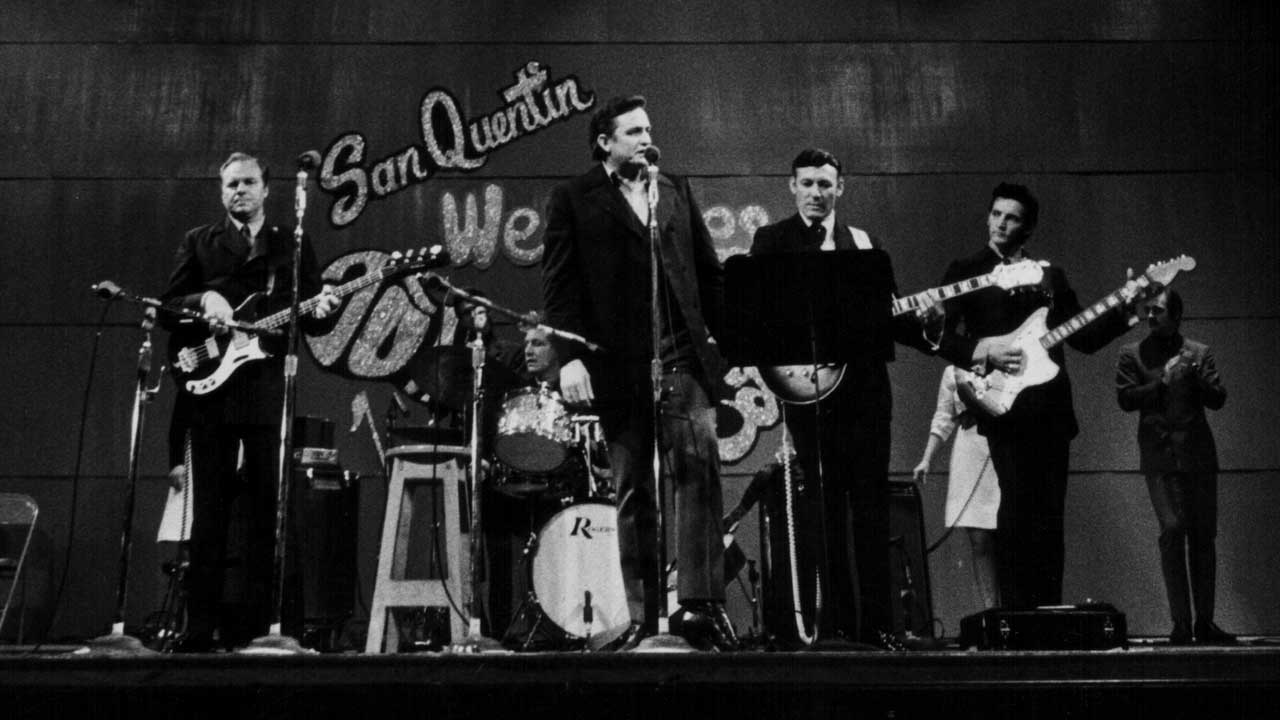There are plenty of tall tales in rock folklore that sound too good to be true – because, well, they are. And you could be forgiven for doubting any musician weaving a romantic back story about being on the wrong side of the law and gaining salvation through music – hip-hop is full of them, many greatly exaggerated.
So could it really be true that Merle Haggard, one of the leading figures of the Bakersfield sound and the 1970s “outlaw” country movement who kicked against the Nashville machine’s slicker, more anodyne trends, underwent a damascene conversion from life as a real-life outlaw, banged up in San Quentin prison, to righteous folk troubadour thanks to seeing Johnny Cash playing a show at the jail?
The Man in Black’s prison performances became legendary thanks to recordings such as the 1968 album At Folsom Prison, and the following year’s At San Quentin. The idea of the show at the former establishment came from his 1955 hit Folsom Prison Blues, telling of being incarcerated there after the narrator “shot a man in Reno just to watch him die”.
Scholars of Cash’s life would later point out that the only time Johnny himself spent behind bars during his lifetime was the odd night in police cells when arrested for drunkenness and drug possession. When he sang lines such as "San Quentin I hate every inch of you", he explained that he was trying to get inside the mindset of prisoners rather than speaking from personal experience.
So maybe the Haggard story was a similar result of creative licence? After all, the San Quentin show he recorded for the live album took place in 1969, several years after Haggard was an inmate there.
But in fact Cash had been playing shows in prisons and correctional facilities regularly since the late 1950s, and it was at one such show, at San Quentin on New Year’s Day 1959, that a 21-year-old Merle Haggard caught his act. Haggard had been in trouble with the law throughout his teens and ended up in San Quentin in 1958 after being sentenced for robbing a roadhouse and then trying to escape from his previous jail.
He later told of how captivated he was not just with Cash’s music but the whole package:
"He had the right attitude. He chewed gum, looked arrogant and flipped the bird to the guards – he did everything the prisoners wanted to do. He was a mean mother from the South who was there because he loved us. When he walked away, everyone in that place had become a Johnny Cash fan."
Haggard resolved to do something more constructive with his life. As he summed it up: "It set a fire under me that hadn’t been there before."
He was released on parole in 1960 and immediately began performing and recording. Fast forward to 1969, when Haggard, now with numerous hits to his name, would appear on Cash’s TV show and between numbers, the host mentioned playing at San Quentin. They had the following exchange.
Haggard: "Funny you mention that, Johnny.”
Cash: "What?”
Haggard: "San Quentin.”
Cash: "Why’s that?”
Haggard: "The first time I ever saw you perform, it was at San Quentin."
Cash: "I don’t remember you being in that show, Merle."
Haggard: "I was in the audience, Johnny."

